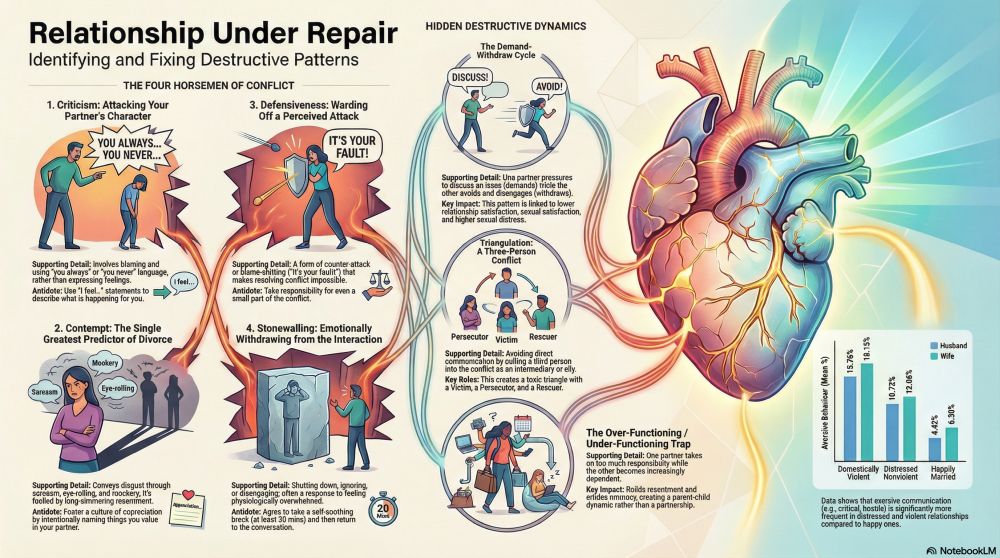Breaking the Bickering Cycle
Understanding the Bickering Cycle
Bickering often becomes a destructive pattern where couples argue about surface-level issues while deeper problems remain unaddressed. These frequent, low-level conflicts can erode relationship satisfaction and intimacy if left unchecked. Understanding why bickering occurs is the first step toward breaking the cycle.
Common triggers for bickering include daily stressors, unmet needs, communication misunderstandings, and underlying relationship tensions that haven’t been properly resolved. Couples often find themselves arguing about the same topics repeatedly because they’re addressing symptoms rather than root causes.
Establishing Communication Ground Rules
Effective communication requires structure and mutual respect. Setting clear ground rules helps prevent conversations from escalating into harmful arguments.
Essential Ground Rules for Constructive Communication
- No name-calling or personal attacks: Focus on behaviors and specific situations rather than attacking character or personality
- Stay on topic: Resist the urge to bring up past issues or unrelated grievances during current discussions
- No interrupting: Allow your partner to fully express their thoughts before responding
- Use “I” statements: Express your feelings and needs rather than making accusations or assumptions
- Respect time-outs: Either partner can call for a break when emotions become too intense
- Agree on timing: Don’t initiate serious conversations when either person is stressed, tired, or distracted
Structured Dialogue Techniques
Structured dialogue provides a framework for productive communication by ensuring both partners have uninterrupted speaking time, which prevents escalation and promotes deeper understanding.
The Speaker-Listener Technique
Step 1: Designated roles: One person speaks while the other listens without interrupting. Use a physical object (like a pillow) to indicate who has the floor.
Step 2: Time limits: Set a timer for 3-5 minutes per speaking turn to prevent one person from dominating the conversation.
Step 3: Switch roles: After the speaker finishes, the listener becomes the speaker, and vice versa.
Step 4: No immediate solutions: Focus on understanding each other’s perspectives before attempting to solve problems.
Active Listening and Reflection Skills
Reflect before responding: Instead of preparing rebuttals while your partner speaks, focus on truly understanding their perspective. Use reflection techniques to ensure accurate comprehension.
Effective Reflection Techniques
Paraphrasing: “So you’re saying that you felt ignored when I was on my phone during dinner. Is that right”
Emotional validation: “I can understand why that would make you feel unimportant to me.”
Clarifying questions: “When you say you need more support, what would that look like specifically”
Summarizing: “Let me make sure I understand your main concerns…”
The Strategic Use of Time-Outs
Time-outs are essential for preventing conversations from escalating into destructive arguments. When emotions run high, taking a pause allows both partners to calm down and return to the conversation with clearer thinking.
How to Implement Effective Time-Outs
Recognize the signs: Learn to identify when you or your partner are becoming too emotional to communicate effectively (raised voices, feeling defensive, saying hurtful things).
Call the time-out respectfully: “I’m feeling too heated right now. Can we take a 20-minute break and come back to this”
Set a specific return time: Don’t leave the conversation hanging. Agree on when you’ll reconvene to continue the discussion.
Use the break constructively: Take deep breaths, go for a walk, or do something calming rather than rehearsing arguments or building resentment.
Return when calm: Resume the conversation only when both partners feel emotionally regulated and ready to communicate constructively.
Identifying and Addressing Root Causes
Effective conflict resolution requires moving beyond surface-level complaints to understand the underlying needs, fears, and values driving the bickering.
Common Root Causes of Bickering
- Unmet emotional needs: Feeling unappreciated, disconnected, or undervalued in the relationship
- Different values or priorities: Fundamental disagreements about money, family, career, or lifestyle choices
- Communication style differences: One partner being direct while the other is indirect, or different comfort levels with conflict
- External stressors: Work pressure, financial concerns, or family issues spilling over into the relationship
- Unresolved past hurts: Previous arguments or betrayals that continue to influence current interactions
Problem-Solving Strategies
Once couples understand the root causes of their bickering, they can work together to develop practical solutions that address underlying issues.
Collaborative Problem-Solving Process
Define the problem clearly: Agree on what specific issue you’re trying to solve, focusing on behaviors and situations rather than personality traits.
Brainstorm solutions together: Generate multiple possible solutions without immediately judging their feasibility.
Evaluate options: Discuss the pros and cons of each potential solution, considering both partners’ needs and preferences.
Choose a trial solution: Select one approach to try for a specific period, with the understanding that you can adjust if it doesn’t work.
Schedule follow-up: Set a time to evaluate how well the solution is working and make necessary adjustments.
Building Positive Communication Habits
Reducing bickering requires replacing negative communication patterns with positive ones that strengthen the relationship over time.
Daily Communication Practices
Regular check-ins: Schedule brief daily conversations about feelings, needs, and upcoming stressors to prevent issues from building up.
Express appreciation: Make a habit of acknowledging your partner’s positive contributions and efforts, even small ones.
Practice empathy: Try to understand your partner’s perspective, especially when they’re stressed or upset about something.
Address issues promptly: Discuss concerns when they arise rather than letting them accumulate into larger conflicts.
When to Seek Professional Help
Professional help from a couples therapist can provide valuable support when bickering becomes chronic or when couples struggle to implement communication improvements on their own. A therapist teaches communication techniques in a neutral environment and helps couples identify patterns they might not see themselves.
Signs You May Benefit from Couples Therapy
- Bickering occurs daily or multiple times per week
- Arguments frequently escalate to yelling, name-calling, or emotional withdrawal
- You find yourselves arguing about the same issues repeatedly without resolution
- One or both partners feel unheard or dismissed during conflicts
- Bickering is affecting intimacy, friendship, or overall relationship satisfaction
- You’ve tried improving communication on your own but continue to fall into old patterns
Early intervention through couples therapy is often more effective than waiting until problems become severe. Many couples find that just a few sessions can provide them with the tools they need to communicate more effectively and reduce unnecessary conflicts.
Long-Term Relationship Success
Breaking the bickering cycle requires ongoing effort and commitment from both partners. Success comes from consistently applying healthy communication techniques, addressing issues promptly, and maintaining empathy and respect even during disagreements.
Remember that the goal isn’t to eliminate all conflict-healthy relationships involve disagreements and negotiations. The objective is to ensure that conflicts are productive rather than destructive, leading to greater understanding and stronger connection between partners.


